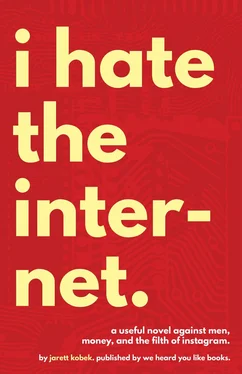Erik went to San Francisco and found a job at Sequoia Capital. Sequoia Capital was a venture capital firm.
Venture capital firms offered opportunities in venture capital funds.
Venture capital funds provided money to up-and-coming companies.
In exchange for this funding, the firms purchased a certain amount of equity in these up-and-coming companies.
The funds were managed by general partners like Erik. The investors, either very rich individuals or very rich institutions, were limited partners.
The general partners found opportunities and, using the money of the limited partners, invested in these opportunities.
The basic underlying approach of venture capital firms was to invest in a wide range of companies. Most of the companies in which venture capital firms invested would fail.
The hope was that one or two of these companies would make a great deal of money. This great deal of money would offset the losses from the bad investments.
It was like shooting at a flock of birds with a sawed-off shotgun.
After a few years at Sequoia, Erik Willems and some of his co-workers decided to found their own venture capital firm. They named it MoriaMordor.
The co-founders arrived at this name by combining two imaginary locations in J.R.R. Tolkein’s The Lord of the Rings. Having lived in the Bay Area for some years, Erik and the other co-founders were well versed in juvenile literature. They groked Sci-Fi/Fantasy.
Before anyone could join MoriaMordor as an official co-founder, they had to pass a trial by fire. Each needed to land at least one limited partner.
Some of the co-founders tapped clients for whom they’d worked at Sequoia Capital. Erik chose another route. He called Dennis.
It took a few days of wrangling with Fear and Respect’s apparatchiks, but Erik got Dennis on the telephone.
When Erik spoke to Dennis, the latter was staying in the Hürrem Sultan suite at Hôtel Les Ottomans in Istanbul, Turkey. His father was entertaining the idea of purchasing the hotel, which was a renovated old mansion overlooking the Bosphorus.
“How’s Istanbul?” asked Erik.
“My mother, as I am sure you remember, she herself was a Turk. As was my grandmother. I always love this country. The only unpleasantness in Turkey is the Turks. Still, a person admits their hospitality. Their name for me here is Küçükkutsaldağ. ‘Hoşgeldiniz Küçükkutsaldağ,’ they say. ‘Nasılsınız, Küçükkutsaldağ?’ they ask. A beautiful thing. But Istanbul, eh, what words might a man offer about Istanbul? It is the most wonderful city in the world if a person’s sole desire is to encounter ten thousand red-faced Germans wearing t-shirts which read either ‘NYC’ or ‘Brooklyn.’”
Erik told Dennis about MoriaMordor. He asked Dennis to contribute to MoriaMordor’s limited fund.
Dennis said yes.
MoriaMordor’s first fund had an initial capitalization of $50,000,000. The general partners were working for Fear and Respect Holdings Ltd. They were working for the endowment of the University of California. They were working for Indiana’s Public Retirement System. They were working for other, smaller entities.
This fund had a limited term.
After ten years, the fund would disappear.
The partnership would dissolve.
The incentive, as with deregulation , was on short term gain.
MoriaMordor was formed at a fortuitous moment. It arrived only one year after the release of the iPhone.
The iPhone was a smartphone introduced into the market by Apple. Smartphones were small computers which performed almost all the tasks of bigger computers but also functioned as a cellular telephone.
The iPhone was a leap forward for smartphones because of two features: (1) Its display and interface employed multitouch glass, which meant that its users dragged their fingers around its physical surface to make the iPhone do their bidding, smearing the grease of their flesh as they commanded the technology. (2) Apple built an interface for the iPhone which allowed its users to both create and buy additional iPhone software while using the iPhone.
This type of software was called an application , but was better known by the colloquial name app. You could buy apps in the Apple App Store.
In 2010, Apple had introduced a new product called the iPad.
The iPad was an iPhone with a bigger screen and no ability to function as a cellular phone. The iPad was a tablet.
It could run all of the apps that people used on their iPhones.
Most apps were developed on the principle of the lowest common denominator, working off the general assumption that stupidity was the baseline of the human experience.
If an app was developed with stupidity in mind, and if stupidity was the baseline of the human experience, then perhaps hundreds of thousands, if not millions, would download this app.
Some apps cost money. Others were free and served advertisements.
Apps were incredible growth opportunities. The burgeoning mobile market was creating hundreds, if not thousands, of new businesses around the Bay Area. Each of them needed funding.
Around the time that Adeline committed her unforgivable sin, Erik had begun a formal monetary relationship between MoriaMordor and a company called Lifechoosey.
Lifechoosey was a platform with a social media overlay which focused on men’s fitness. It offered good deals on gyms and personal trainers. It allowed its users to recommend the best places to workout. It had both a website and multi-OS smartphone apps .
Between rounds of power masturbation and screwing out Adeline’s brains, Erik Willems had analyzed the market research and feasibility studies on Lifechoosey. He spoke with its founders, a pair of undergraduate students at Stanford University.
MoriaMordor gave Lifechoosey $5,000,000 in funding.
In exchange, MoriaMordor gained an equity stake in the company, represented by a significant amount of stock options, and some controlling interest in the company’s destiny, represented by two seats on its board.
Contingent upon his investment of the limited partners’ money, Erik Willems demanded that Lifechoosey change the company’s name.
Lifechoosey became Bromato, which was a portmanteau of bro, a slang term for young straight men interested in physical pleasure, and the three syllables of tomato without the determining ‘t.’
A bro was the target audience. Omato induced visions of the ripe healthy swollen fruit.
Thus was Bromato born.
The thing to remember is that the venture capital fund managed by Erik Willems could not make long term investments. It had a limited term of ten years.
He was bound to find quick returns on the invested money.
Limited terms ensured that venture capital outfits like MoriaMordor had a unique metric by which they measured a company’s success.
To be a success for MoriaMordor, Bromato did not need to make a profit.
If Erik Willems invested $5,000,000 in Bromato for a 20 % equity stake, this would set the valuation of Bromato at $25,000,000.
This valuation was determined by ideas and processes developed through years of investing. In theory, the valuation was meant to reflect the growth potential of the company and its potential earnings.
In actuality, the valuation of Bromato was meaningless. It existed in a complex and random system. Bromato offered an entirely new and untested service in an ultra-niche market.
Erik Willems could have arrived at an equally valid number by standing in Golden Gate Park’s Sharon Meadow, the place where all the old hippies held drum circles, counting the number of farts that drifted beneath his nose and multiplying the number by one million.
Читать дальше












